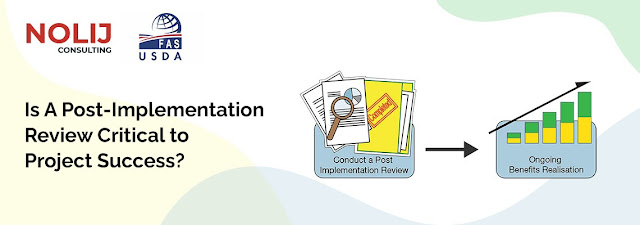How The Application of AI Is Transforming the Healthcare Industry
Digital CRISPR Transforming the Healthcare Information Technology For Good
The benefits of AI in the workplace are only just beginning to be explored. With its rapid growth of robotic process automation service providers, AI has quickly become a vital tool for healthcare professionals and organizations across the country.
The use of artificial intelligence in healthcare industry and the increased use of data analytics has led to dramatic improvements in healthcare. More modernize health it systems companies are now reliable on application of AI in healthcare industry. Records are being digitized, digitized, and the number of electronic health records continues to grow. The need for high-quality analytics is critical in order to capitalize on this opportunity.
Artificial intelligence is taking over the healthcare Information Technology space. AI has already started to replace jobs such as transcriptionists, and will continue to do so with the advent of new technologies such as voice recognition and AI-generated content.
The capabilities it delivers are reinventing the ways we approach and manage diseases and chronic ailments while revolutionizing healthcare from the inside out.
Data analysis health services research and human centered design process services is redefining the capabilities of medical information, predictive analytics, and healthcare systems. The system uses machine learning to help with diagnosing patients, developing personalized treatments, and managing chronic diseases.
Use of AI and Robotics in Healthcare Industry Can Turn Patient Care from Prescriptive to Predictive
The application of AI in healthcare industry is growing rapidly. Artificial Intelligence gives healthcare providers the power to catch abnormalities and act on them sooner. This enables healthcare providers to observe patterns in symptoms through data gathered from patients. The most useful AI system for healthcare is IBM Watson, which can be used for diagnosis along with treatment options.
The use of AI and robotics in healthcare industry ensures high accuracy, which can speed the diagnostic process and improve patient prognoses. Diagnosis of heart disease is an art that AI has now mastered. Utilizing AI, doctors can now diagnose heart disease much earlier than before. This is beneficial for patients as it helps to prolong their lives and outcomes significantly.
Artificial Intelligence is holding tremendous potential to help providers become more proactive in preventing the spread of diseases. AI has the ability to gather real-time data about pathogens, which can be analyzed and acted upon almost instantaneously. It allows providers to take preventative measures against pandemics long before they are able for manifest.
Researchers are leveraging Artificial Intelligence to help healthcare providers gain insights into their patients. For example, recent research has shown that machine learning can be used to predict, with 98% accuracy, which of two patients will die first.
Proof of Concept in Our Own Government.
Artificial intelligence (AI) has the ability to achieve positive outcomes in healthcare operations management, which impact patient costs and care. According to a report from Accenture, AI technology can help reduce hospitals' operating costs by as much as 15% and enhance revenue by as much as 40%. One of the many ways this is accomplished is through predictive analytics. Analytics can identify patients with higher risks for clinical deterioration.
In 2017, the Office of Management and Budget tasked federal agencies to submit reform plans to improve efficiency, effectiveness, and accountability in their programs. These reforms focus on reducing duplication of effort and increasing public engagement.
One healthcare institution was ahead of the game, as they had already embarked on a multi-faceted, department-wide transformation effort driven by AI. They were looking to address three major challenges: access, quality, and cost. With the help of AI systems that can monitor patient health and communicate with physicians automatically, they were able to provide better care while drastically reducing wait times.
The US Department of Defense launched a key initiative to modernize how it acquires goods and services. The Pentagon's goal is to stop relying on outdated, paper-based methods that are inefficient, time-consuming, and costly. To prepare for this initiative, the department has already invested in new technology that will provide better data about the current state of the defense supply chain.
There is a lot of money involved in the healthcare industry. In 2017, it had more than $24 billion in annual spending. The healthcare institution saw an opportunity to leverage AI and an e-commerce solution to establish a cohesive acquisition structure across the department.
Healthcare institutions are rapidly adapting to the changing demographics and distinctive needs of their patient population. The skills needed by procurement professionals have also shifted. These factors have resulted in shifting priorities, increasing pressure, and greater need for strategic sourcing expertise.
There are so many challenges in healthcare procurement. It is a time-consuming, arduous process that can sometimes be disproportionate to the benefits. Artificial Intelligence (AI) is being used to help healthcare institutions address these challenges. AI can help streamline procurement processes by analyzing data and recommending solutions for improved efficiency and effectiveness of the process.
Companies now have the ability to automatically analyze large sets of data. At this point, the possibilities are endless. Organizations are finding ways to use AI in Healthcare for everything from detecting credit card fraud to detecting dementia. The use of cloud computing and big data has led to a system that is able to help businesses with procurement and delivery of key goods and services. The system can identify and categorize like items, compare pricing and availability, and confirm the most cost-effective procurement and delivery of key goods and services while cutting processing costs.
This example found that by examining more than 97,400 contracts comprising over 1,000,000 pages it was discovered the following key results:
- Defibrillators that cost $2,667.00 per unit used to be acquired for $946.00 yielding savings of 178%
It is exciting to see companies and industries jump on board with AI. One of these is remote conference platforms. We were able to substantially cut costs for one of our customers with the use of AI, making it much more feasible for them without sacrificing quality. The benefits are huge- about 322%
AI is the Future - So Modernize Health IT Systems Companies
Artificial intelligence is a collection of technologies that enable new ways to solve age-old problems. It has been applied to healthcare by identifying cancer, heart disease, and other illnesses before they become disabling or life-threatening. AI can also be used to analyze data from medical records, lab tests, and patient questionnaires to detect patterns that might lead to a diagnosis or insight into a patient's condition.
Predictive care is a term that refers to the practice of doctors treating people with conditions which are likely to occur. Instead of waiting for the condition to actually manifest, the doctor can take preventative measures which might head off an emergency or address a chronic problem that could otherwise end up being very costly.
Artificial intelligence has had a significant impact on how healthcare professionals and organizations approach their day-to-day activities. AI has helped to reduce the risk of human error, improved decision-making capabilities, and most importantly, has saved countless lives.
Patients will receive better care and live longer, we’ll learn faster about major diseases, such as cancer, and providers will be able to function more efficiently than ever before. The development of better health information technology is an exciting time for the industry – the benefits are sure to be significant.
Learn more about Nolij Consulting:
Nolij is a solutions-focused Healthcare IT services company that specializes in digital healthcare modernization for the military, public, and commercial sectors.




Comments
Post a Comment